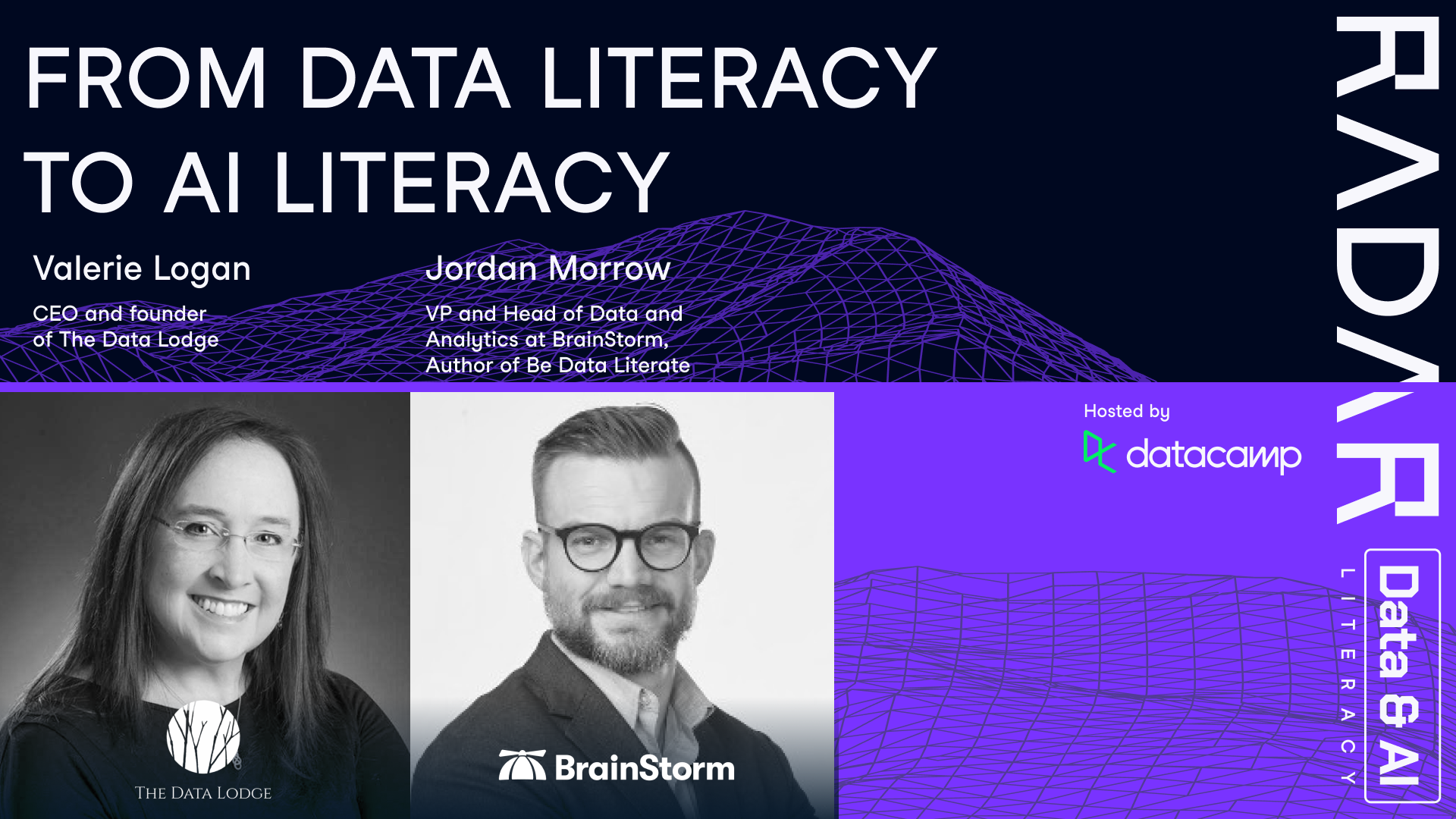Skip to main contentFor Business





Speakers

Valerie Logan
CEO and Founder at The Data Lodge

Training 2 or more people?
Get your team access to the full DataCamp library, with centralized reporting, assignments, projects and moreRelated
webinar
From Data Literacy to AI Literacy
Join data literacy pioneers, Jordan Morrow & Valerie Logan, as they discuss the emergence of AI literacy, key steps leaders can take to foster it, and more.webinar
Radar Data & AI Literacy Edition: Opening Remarks: The Age of Data & AI Literacy
In this opening session, join DataCamp CEO Jonathan Cornelissen, as we explore what it means to live in the era of data & AI literacy.webinar
Radar Data & AI Literacy Edition: From Insight to Impact with Data Storytelling
In this session, join Gary Wolf, Lea Pica and Jason Forrest as they delve into the world of data stories and how they play out in our lives.webinar
Radar Data & AI Literacy Edition: Laying the Foundations: Data Quality in the Age of AI
Join Susan Walsh and Scott Taylor as they walk us through how data leaders can make meaningful gains on their data quality initiatives, and the nuances of scaling a data quality initiative with AI in mind.webinar
The State of Data & AI Literacy in 2024
Join this webinar to learn how and which data & AI skills are becoming increasingly pervasive in organizations across industries, how leaders are adapting their teams and workforce to the era of data & AI literacy and more.webinar
Radar Data & AI Literacy Edition: How WGU & HP Are Building the Data & AI Literate Workforce of the Future
Join Eric Lagally, Academic Director and Associate Dean at Western Governors University & Andy Shelton, Technical Learning Program Architect at HP, as they discuss the ins and outs of managing a large scale upskilling program for data & AI skills.Join 5000+ companies and 80% of the Fortune 1000 who use DataCamp to upskill their teams.
Loved by thousands of companies
